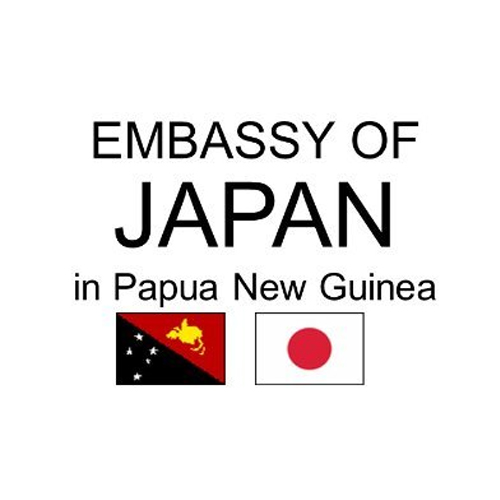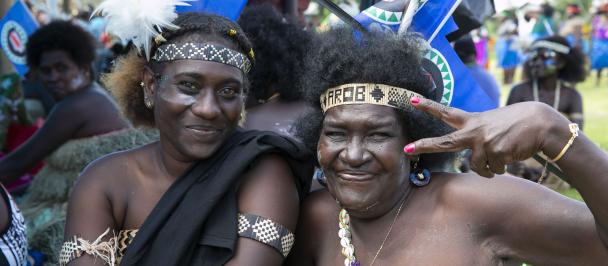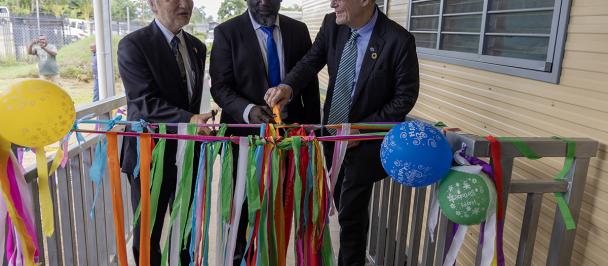Papua New Guinea
PACIFIC GREEN TRANSFORMATION PROJECT
Donor

Implementing Agency

SUSTAINABLE DEVELOPMENT GOALS

PROJECT COUNTRIES

About the Project
The Project for ‘Promoting Green Transformation in the Pacific Region towards Net-Zero Emissions and Climate-Resilient Development (Pacific Green Transformation Project)’ is a USD 37.5 million multi-country project being implemented in four Pacific countries - Papua New Guinea (PNG), Samoa, Timor-Leste, and Vanuatu - with funding provided by the Government of Japan. The project supports the countries in advancing the “Green Transformation” of their economies that will reduce dependence on fossil fuels and pave the way for a more sustainable and climate-resilient future.
In PNG, the project will harness the power of renewable energy to support the national government in reaching its aim of providing electricity to 70% of Papua New Guineans by 2030. This goal is crucial to achieving the country’s National Determined Contributions (NDCs) under the Paris Agreement.
Key Issues
Most communities in PNG are located in rugged, remote and mountainous terrain, which makes connecting them to the primary grid both complicated and expensive. Despite having an abundance of renewable energy sources, the country remains reliant on fossil fuels for its primary energy supply. This dependence makes the country vulnerable to both climate and economic shocks.

Key Planned Objectives
- Under the framework of the UNDP Climate Promise, the multi-country project aims to promote “Green Transformation” in the Pacific Region towards net-zero and climate-resilient development.
- In PNG, the project will achieve this by expanding access to renewable energy in the Autonomous Region of Bougainville (ARB).
- To increase access to reliable and clean energy in the ARB, the project will pilot renewable energy facilities in three regions of Bougainville, and one micro solar farm site with a 1 MW capacity in Southern Bougainville.
Approach
The project in PNG will follow six steps to achieve its aims:
Expected Outcomes
- Access to more affordable forms of off-grid renewable energy will significantly improve the livelihoods of communities in the ARB, especially local women and youth.
- By pursuing greener income generation options, PNG will leapfrog outdated fossil fuel technologies and accelerate reductions in emissions to achieve its NDCs under the Paris Agreement.
- The project will drive sustainable, inclusive, and peaceful development for local communities and open up opportunities for the private sector to expand renewable energy in the ARB.
- By 2025, PNG demonstrates improved performance in managing environmental resources and risks emanating from climate change and climate change induced natural disasters.
Impact Stories
Blogs
Video Gallery
Publications
Recent News & Events
Impact
START DATE
February 2023
END DATE
September 2025
STATUS
Ongoing
PROJECT OFFICE
Papua New Guinea
IMPLEMENTING PARTNER
UNDP
DONOR
Government of Japan
TOTAL CONTRIBUTIONS
$3,726,000
DELIVERY IN PREVIOUS YEARS
2023 $359,664.09
2024 $956,275.04
Partners



Contact Information
Patricia Porras
Project Manager
patricia.porras@undp.org

 Locations
Locations















